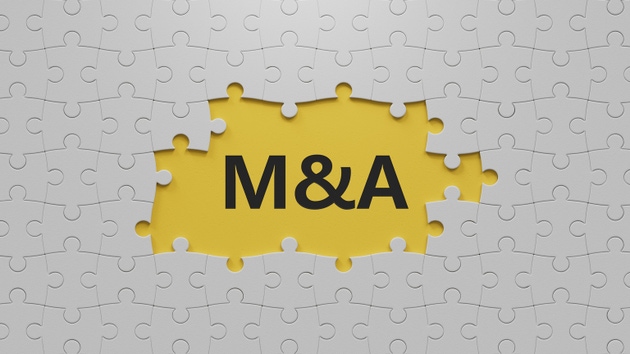Like many other industries, market research relies heavily on data. However, compliance and data security have never been more imperative than now with the large amounts of data collected. Protecting data storage is not merely technical; it’s critical for establishing confidence and safeguarding the integrity of future research undertakings.
Key Security Concerns in the Storage of Market Research Data
What could prove detrimental to a business is if proper care is not taken to safeguard your market research data, which falls prey to multiple security risks. Let’s discuss a few important issues that we hope you are already aware of:
Data Leaks and Security Breaches: This happens when someone accesses your data without authority. In 2024, breaches of various data sets leaked all over the World. Such cases prove the point that data safeguards and policies need to be a lot stronger than they are now. This is important so that, even if someone breaks into a system, no data is destroyed or leaked.
DDoS Attacks: These attacks slow down operations by disrupting businesses with excessive system traffic to the point of causing a complete halting of work and information leakage. For example, a customer of Google Cloud Armor suffered an HTTPS DDoS attack in 2022 which reached a staggering 46 million requests for every second. This is akin to receiving all the daily requests to Wikipedia in a matter of 10 seconds.
Lack of Compliance (GDPR, CCPA, etc): Compliance with regulations based data protection like the General Data Protection Regulation (GDPR) and the California Consumer Privacy Act (CCPA) is key. Doing so improperly or not at all can bring tremendous fines. Such as GDPR has gotten roughly around 4.5 billion euros in fines up until March 2024.
Data Loss and Corruption: By definition, corrupted data refers to data that has been unintentionally altered in a way that renders the data unusable. Meanwhile the loss of data points towards unintentional data deletion. Both can result from cyber attacks or even a system crash. In 2024, the average total cost per data breach around the globe was exceedingly high.
#mc_embed_signup{background:#fff; false;clear:left; font:14px Helvetica,Arial,sans-serif; width: 600px;}
/* Add your own Mailchimp form style overrides in your site stylesheet or in this style block.
We recommend moving this block and the preceding CSS link to the HEAD of your HTML file. */
Sign Up for The Start Newsletter
(function($) {window.fnames = new Array(); window.ftypes = new Array();fnames[0]=’EMAIL’;ftypes[0]=’email’;fnames[1]=’FNAME’;ftypes[1]=’text’;fnames[2]=’LNAME’;ftypes[2]=’text’;fnames[3]=’ADDRESS’;ftypes[3]=’address’;fnames[4]=’PHONE’;ftypes[4]=’phone’;fnames[5]=’MMERGE5′;ftypes[5]=’text’;}(jQuery));var $mcj = jQuery.noConflict(true);
Implementation of Secure Data Storage Practices
Encryption is one of the measures that ensures that not just anybody can access one’s data. It is imperative to have strong encryption controls for sensitive data at rest (stored) and secure network encryption controls for data in transit (being transmitted).
Restricting data access to a few authenticated users minimizes the risk of exposure. Do not forget to authenticate users using methods like multi-factor authentication (MFA). Make sure to frequently modify user roles to ensure those actively using the account have permission to access the information rather than the account being easily misused.
To maintain data security in the face of hardware failures, cyberattacks, or any other impacts, regular data backups should be made. It is also wise to create a proper disaster recovery plan. Regularly conducted backups ensure that the data is present when there is a need and also checking if the systems backing up data were set up properly is vital.
AppSumo
AppSumo is the store for entrepreneurs. We curate essential software deals that every entrepreneur needs to run their business.
Choosing the Right Secure Storage Solution
Identifying a secure storage solution that can protect sensitive information is tricky. In this section, we analyze key aspects that will help you make an informed decision.
On-Premises vs. Cloud-Based Solutions
On-Premises Storage: This option gives the maximum control over your data hardware and security systems. This is ideal for businesses operating in highly sensitive industries that have to comply to strict standards. However, these solutions often have higher initial costs and require more IT assistance.
Cloud-Based Storage: This option offers remote access to information which is ideal for growing businesses. Unfortunately, it comes with other issues. For one, security breaches and outages are problematic. Data stored in the cloud tends to be targeted, and organizations suffer an average loss of £4.07 million ($5.17 million) per breach due to data being stored in the cloud.
Critical Security Features
With regards to picking out a solution, some features are absolutely crucial:
Encryption: Make sure that your data is encrypted when it’s in motion as well as when it is at rest in some other location. Anyone trying to access your stored data without authentication will most likely be unable to due to powerful encryption safeguards around the stored information.
Access Logs: Data protection comes from a combination of affirmative and reactive measures. This is why you need to set and monitor the parameters for who can check your data and when. Active auditing of these logs assists with counteracting security issues as they arise.
Compliance Assistance: Check that the storage solution complies with all industry regulations and standards. Your practices regarding data storage will be compliant legally and morally.
Cost, Scalability, And Integration
Cost: Cloud storage is offered on a subscription basis, unlike older solutions, which is great for businesses not wanting to blow lots of money upfront. However, the on-premise computers need an initial hardware investment and ongoing expenditure on maintenance costs after a period of time.
Scalability: Cloud solutions are very flexible in general, and the storage can easily be increased or decreased depending on the need. On-premise solutions tend to need more time and money spent to scale up.
Integration: How does the storage solution work with existing company systems and workflows? Cloud services can be integrated with numerous applications easily, while on-premises solutions often require custom configurations.
Verizon Small Business Digital Ready
Find free courses, mentorship, networking and grants created just for small businesses.

Regulatory Compliance and Data Protection Standards
Around the world, 137 of 194 countries have some type of data protection and privacy legislation. A vital part is safeguarding the organization’s data which is the requirement of the European Union’s General Data Protection Regulation (GDPR) regarding collection, processing, and storage. Businesses that do not follow the laws stand to lose a maximum of 4% of their revenue.
Similarly, the California Consumer Privacy Act ( CCPA ) gives consumers certain rights relative to their personal information helping foster a free culture in the United States.
At the industry level, some laws become more critical. In the United States, the healthcare industry is mandated to follow The Health Insurance Portability and Accountability Act (HIPAA) which protects the privacy of a patient’s health information.
Gaining compliance is a process that requires an action plan with respect to data governance. Here are some actions you may wish to take to get there:
Data Governance Framework: Set the policy and procedure for the company’s data governance framework and ensure that it is compliant with the relevant policies.
Access Control: Allow data access to authorized personnel only to reduce the possibility of unwanted data exposure.
Regular Training and Awareness: Establish a complete compliance culture by educating your workforce on the existing data protection policies and laws.
Monitoring and Auditing: Clients using the services should be periodically scrutinized and their practices for dealing with sensitive data reviewed and modified to delineate any potential hostile factors.
Conclusion
Clients need to be assured of trust and confidentiality, as well as compliance to a myriad of laws that make securing market research data and any sensitive information crucial.
Access control, regular backups, and encryption are some measures that can prevent security breaches or unauthorized access. Such practices go a long way in complying with data protection standards and also enhance trust and market credibility in advanced business research.
Image by benzoix on Freepik
The post Implementing Secure Data Storage Solutions for Market Research Data appeared first on StartupNation.





















